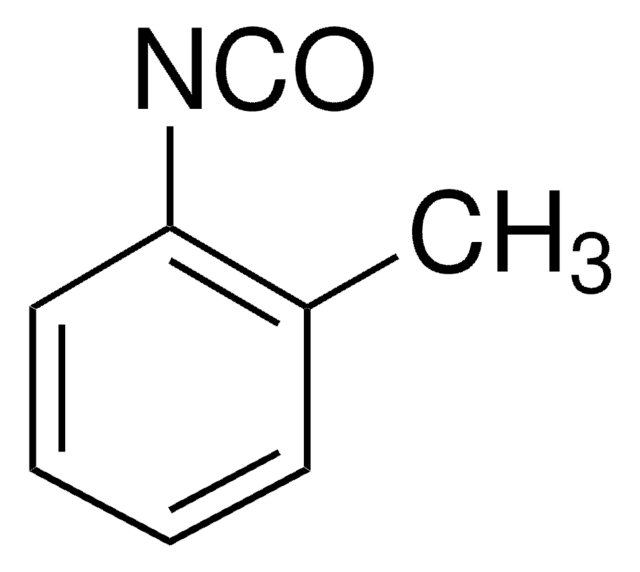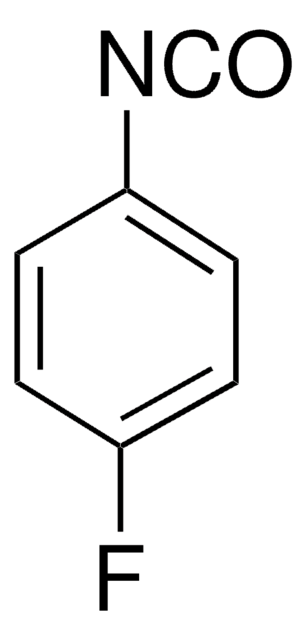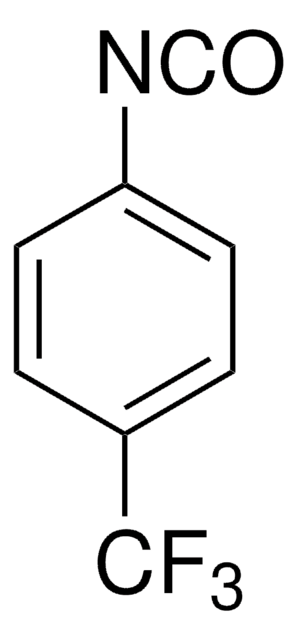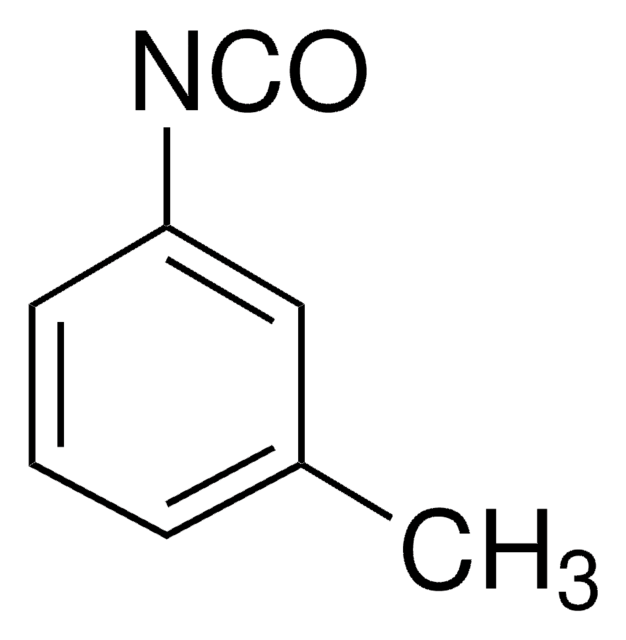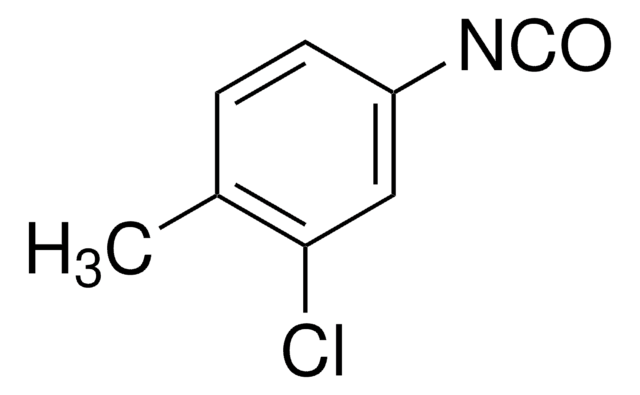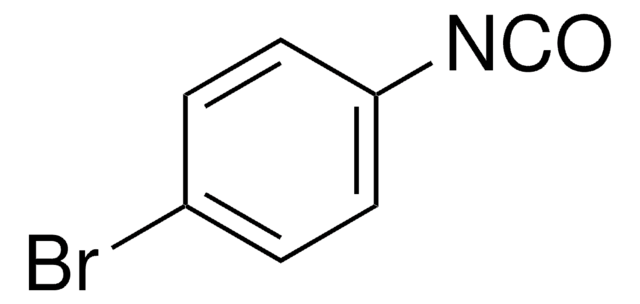143634
p-Tolyl isocyanate
99%
Sinónimos:
4-Methylphenyl isocyanate
About This Item
Productos recomendados
assay
99%
form
liquid
refractive index
n20/D 1.531 (lit.)
bp
70-72 °C/10 mmHg (lit.)
density
1.056 g/mL at 25 °C (lit.)
storage temp.
2-8°C
SMILES string
Cc1ccc(cc1)N=C=O
InChI
1S/C8H7NO/c1-7-2-4-8(5-3-7)9-6-10/h2-5H,1H3
InChI key
MGYGFNQQGAQEON-UHFFFAOYSA-N
¿Está buscando productos similares? Visita Guía de comparación de productos
Categorías relacionadas
General description
Application
signalword
Danger
Hazard Classifications
Acute Tox. 4 Dermal - Acute Tox. 4 Inhalation - Acute Tox. 4 Oral - Eye Dam. 1 - Resp. Sens. 1 - Skin Corr. 1C - Skin Sens. 1 - STOT SE 3
target_organs
Respiratory system
Storage Class
8A - Combustible corrosive hazardous materials
wgk_germany
WGK 3
flash_point_f
150.8 °F - closed cup
flash_point_c
66 °C - closed cup
ppe
Eyeshields, Faceshields, Gloves, type ABEK (EN14387) respirator filter
Certificados de análisis (COA)
Busque Certificados de análisis (COA) introduciendo el número de lote del producto. Los números de lote se encuentran en la etiqueta del producto después de las palabras «Lot» o «Batch»
¿Ya tiene este producto?
Encuentre la documentación para los productos que ha comprado recientemente en la Biblioteca de documentos.
Los clientes también vieron
Nuestro equipo de científicos tiene experiencia en todas las áreas de investigación: Ciencias de la vida, Ciencia de los materiales, Síntesis química, Cromatografía, Analítica y muchas otras.
Póngase en contacto con el Servicio técnico


